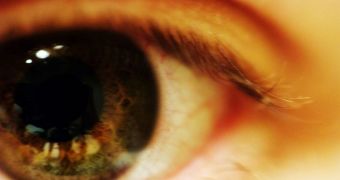For women above the age of 65, exhibiting even a mild dilation of the retinal blood vessels may be an indicator that they are likely to experience cognitive decline, or associated vascular changes in the brain. Scientists made the discovery in a new study.
The team explains that even the mildest forms of retinopathy can be linked to a highly-increased risk of entering cognitive decline. In many cases, by the time the retinal damage is discovered, the decline has already set in. The study was led by a team at the University of California in San Francisco (UCSF).
A multinational collaboration of investigators determined that scanning the eyes at regular intervals may constitute an easy and cost-effective way of figuring out who is most likely to develop cognitive decline, or who already suffers from it, but does not yet show symptoms.
For this array of conditions, early diagnosis and treatment are often the best solutions. In addition, they prevent this decline from turning into various forms of dementia, including Alzheimer’s disease. The scans can also reveal signs of diabetes and hypertension.
By discovering the condition in time, doctors can ask patients to change their lifestyle and food habits, and take drugs that would minimize the damage, allowing access to a window of opportunity that could considerably affect a patient's quality of life.
“Lots of people who are pre-diabetic or pre-hypertensive develop retinopathy. Early intervention might reduce the progression to full onset diabetes or hypertension,” says Mary Haan, DrPH, MPH, as quoted by PsychCentral.
The expert holds an appointment as a professor of epidemiology and biostatistics at UCSF, and was also the lead author of the new investigation. Details of the study were published in the latest online issue of the esteemed scientific journal Neurology.
Using data from the Women’s Health Initiative Memory Study and the Site Examination study, researchers kept track of 511 women (average age 69), for about a decade. Each participant had her short-term memory and thinking processes assessed every single year.
The 39 (7.6 percent) of women who went on to develop retinopathy consistently fared worse at both types of tests than their peers. They were also more likely to develop cognitive decline later on.

 14 DAY TRIAL //
14 DAY TRIAL //